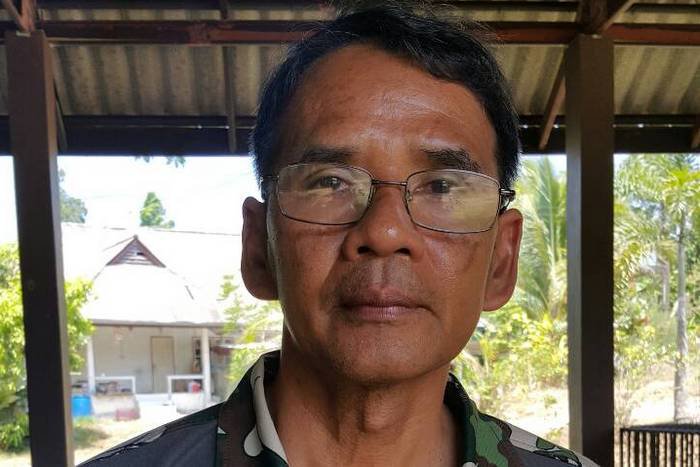Opinion: Save and protect our fellow earth dwellers

Wanchai Supanaus, 56, from Nakhon Sri Thammarat, is the head of the Phang Nga Wildlife Nursery Station. He graduated from Phrae Forestry School in 1979, where he earned a vocational certificate for forestry. He has been head of the station for 15 years.
Here, he discusses the illegal trade of touting protected species, which is prevalent in Phuket and other tourist-heavy provinces in Thailand, and puts forth suggestions for ending it.
PHUKET: People who tout photo opportunities with animals do it because it is an easy way to make money. They can easily earn anywhere from 200 baht to 500 baht per picture, which attracts other people to the illegal trade. These people often hurt or abuse the creatures, such as slow lorises and gibbons, that they show to tourists.
Who is supposed to protect these animals? To be frank, the answer is obvious – everyone is supposed to protect them. People can end this torturous trade by refusing to interact with or even acknowledge the touts. This goes for any animal, protected or not, whether it be a slow loris, gibbon or iguana.
I can say from experience that most foreigners would not want to take a photo with an animal if they knew it was being tortured. Often, the touts play tricks on tourists to lure them toward the animal, and sometimes the touts even threaten them if they do not cough up any cash. Foreigners have no choice but to pay, as they are scared of retribution.
At our nursery, we received many gibbons last year. Now, we are starting to receive more and more slow lorises from police officers in Phuket, Krabi and Phang Nga.
Slow lorises are sent to us after they are seized by police from people who tout them on the streets of these popular tourist provinces. The lorises, which we believe are captured from the jungles in Deep South provinces, such as Yala and Satun, always have their teeth either removed or shaved down to prevent them from scratching or biting people who choose
to pose for pictures with them.
Many of these recently attained lorises died mysteriously after they arrived at the nursery. This was very disconcerting. We believe that the people who use these poor creatures to make money on the street feed them ya bah (methamphetamine) pills to keep the animals awake and alert.
When slow lorises are taken out of their jungle habitats, they quickly forget their natural behaviors and become unable to take care of themselves. Depending on the animal’s health and mental state, it can take anywhere from two months to 10 years to rehabilitate a slow loris before it can be released into the jungle. However, some are so badly abused that we are unable to rehabilitate them; they cannot be freed into their natural homes.
Phuket probably has the most problems with animal abuse of this nature, followed by Krabi and Phang Nga.
As you can see on television and in the newspapers, police frequently arrest people for taking part in the illegal business of touting protected species on the streets.
Anyone who sees a tout with an animal should call police immediately. Tourists should be aware of the trade, and urge their friends and loved ones to refrain from supporting it. We must stop this vicious cycle of animal abuse.
This is just the first step we can all take in protecting our wildlife and preventing abusive behaviors.
I hope that someday, the Phang Nga Wildlife Nursery Station will no longer have to take in any abused animals.
Latest Thailand News
Follow The Thaiger on Google News:


























